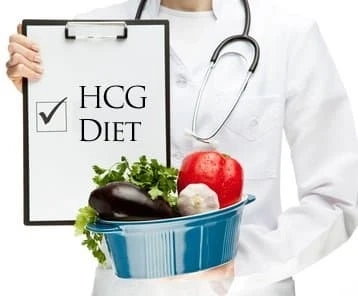Introduction:
In the world of weight loss HCG injections have sparked both curiosity and controversy. From claims of rapid weight loss to concerns about safety and efficacy, separating fact from fiction is essential for anyone considering this approach. Let\'s delve into the science behind HCG injections, their purported benefits, and the critical considerations to keep in mind.
1. Understanding Human Chorionic Gonadotropin (HCG):
HCG is a hormone produced during pregnancy, primarily by the placenta. It plays a crucial role in maintaining hormonal balance and supporting fetal development. However, HCG\'s potential for weight loss was popularized by Dr. Albert T.W. Simeons, who proposed its use in conjunction with a very low-calorie diet for weight management.
2. The HCG Diet Protocol:
Central to the HCG weight loss regimen is the combination of HCG injections with a severely calorie-restricted diet. The protocol typically involves three phases: loading, weight loss, and maintenance. During the weight loss phase, individuals consume as little as 500-800 calories per day while receiving daily HCG injections.
3. Mechanism of Action:
Proponents of the HCG diet argue that HCG injections work by several mechanisms:
- Appetite Suppression: HCG is believed to act on the hypothalamus, reducing feelings of hunger and increasing satiety.
- Fat Mobilization: HCG purportedly stimulates the release of stored fat, allowing the body to use it as a source of energy.
- Preservation of Lean Muscle Mass: Advocates claim that HCG injections help preserve muscle mass while promoting fat loss.
4. The Evidence Base:
While anecdotal reports of rapid weight loss with HCG injections abound, scientific evidence supporting their efficacy is limited and mixed. Some studies have shown modest weight loss in individuals following the HCG protocol, while others have found no significant difference compared to placebo or calorie restriction alone.
5. Potential Benefits:
- Rapid Weight Loss: Some individuals report significant weight loss within a short period on the HCG diet.
- Appetite Suppression: HCG injections may help reduce feelings of hunger, making it easier for individuals to adhere to the calorie-restricted diet.
- Psychological Boost: Quick results achieved with HCG injections may provide motivation and a sense of accomplishment, boosting morale during the weight loss journey.
6. Safety Considerations:
- Medical Supervision: It\'s crucial for individuals considering HCG injections to do so under the supervision of a qualified healthcare provider.
- Potential Side Effects: Side effects of the HCG diet may include fatigue, irritability, constipation, and nutrient deficiencies due to the extreme calorie restriction.
- Long-Term Sustainability: The sustainability of weight loss achieved with HCG injections is questionable, as extreme calorie restriction may not be sustainable in the long term.
7. Alternatives and Additional Strategies:
For those seeking weight loss alternatives or complementary approaches, various evidence-based options exist, including balanced calorie-controlled diets, increased physical activity, and behavior modification strategies. Consulting with a healthcare professional can help individuals identify the most suitable approach based on their unique needs and goals.
8. Conclusion:
While HCG injections may offer a tempting shortcut to weight loss for some, the lack of robust scientific evidence and potential risks underscore the importance of caution and critical evaluation. Before embarking on any weight loss regimen, including the HCG diet, individuals should prioritize safety, sustainability, and informed decision-making. Ultimately, achieving and maintaining a healthy weight requires a comprehensive approach that considers individual needs, preferences, and lifestyle factors.



